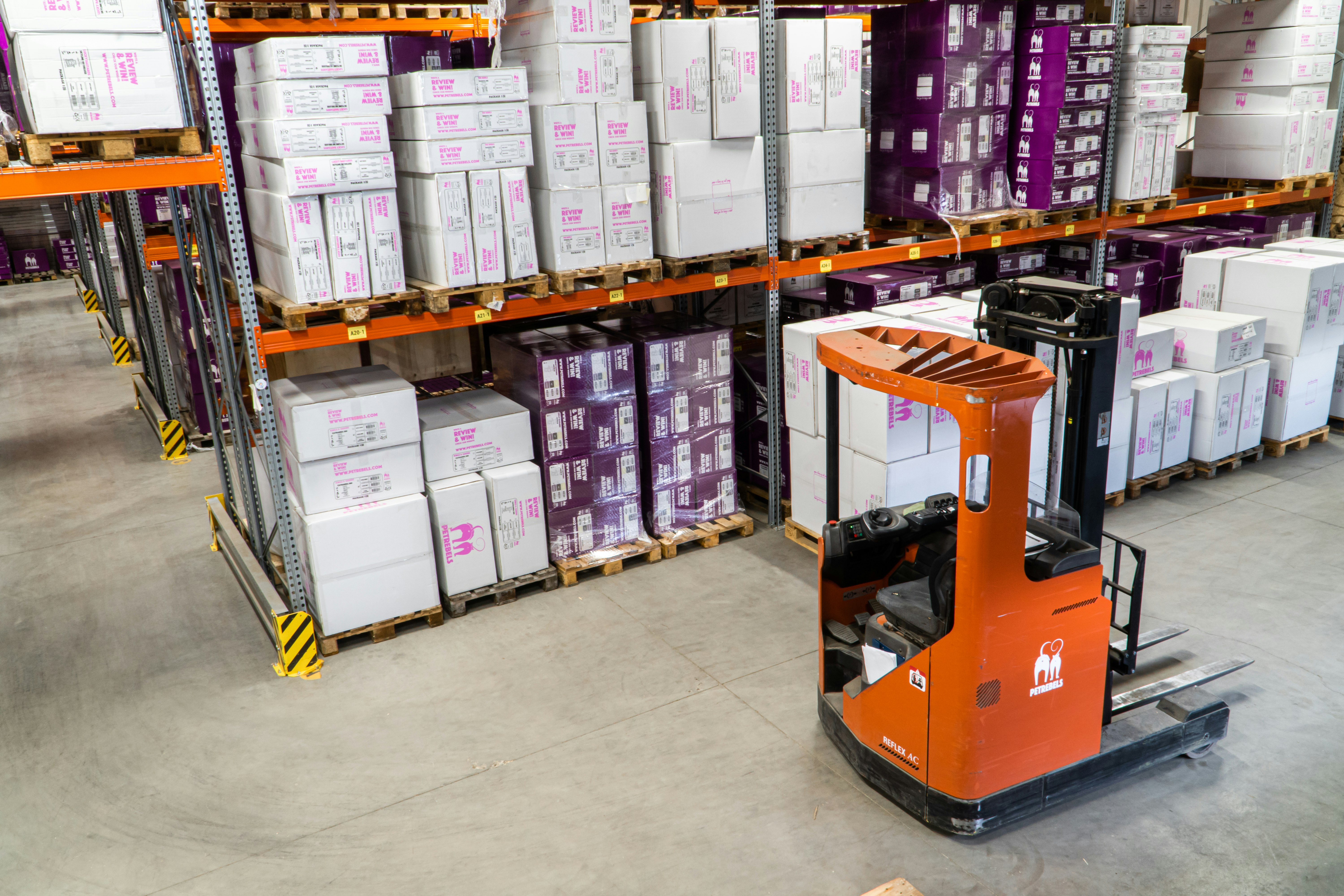
Technology (130)
Unhook Your Supply Chain
- Monday, 28 February 2022
- Technology
- Written by Scott Koegler

The Internet of Things (IoT) has become a buzzword in the tech space over recent years. For the supply chain, it is transforming many aspects, starting from asset tracking to management of inventory and fleet operations. Experts predict that 15 billion more devices will come online in the next decade. These devices can tell supply chain managers where the assets are, help the companies eliminate logistics bottlenecks and enhance the quality of products. Sadly, some limitations have made the deployment of IoT challenging. The limitations are mainly to do with wired and conventional/disposable battery-powered solutions. However, with the technologies like wireless power, the supply chain will be transformed for the better, closing the gap and allowing supply chain managers more insight into the product conditions and how safety and quality might be affected.
Read more...These Technologies Make a Difference in Operating Your Supply Chain
- Monday, 17 January 2022
- Technology
- Written by Scott Koegler

Supply chain and Logistics have gone through many changes in the last decade. Thanks to the rise of various innovative technologies such as machine learning, artificial intelligence and neural networks, processes have now been streamlined, and providers have managed to bring down the cost of operations. In the face of globalization, increased product complexity and rising customer demand, companies are capitalizing on technology to transform their supply chain operations through innovation and efficiency in service delivery. Here are some technologies that make a difference in operating your supply chain.
Read more...The Right IoT Implementations can Improve Your Supply Chain Performance
- Monday, 08 November 2021
- Technology
- Written by Scott Koegler

The Internet of Things (IoT) is changing many things in our lives. It is changing how we look at or do everything, from managing our homes to looking after our health through wearable devices. However, the supply chain sector seems to be the biggest gainer with the advancement of this technology. Thanks to IoT, companies in the supply chain sector can now do many things better, including tracking products in the supply chain from the manufacturing plant to store shelves. As one of the players in this sector, the right IoT implementations can substantially improve your supply chain performance. Here are some benefits of IoT in the supply chain.
Read more...Real-Time Visibility for the Supply Chain with RAIN
- Monday, 27 September 2021
- Technology
- Written by Scott Koegler

Companies in the supply chain sector worldwide are increasingly investing in modern technologies like AI and IoT to enhance performance. This has even been increased by the pandemic that has made in-person operations nearly impossible. These digital solutions have allowed businesses to capture and use their data and promote efficiency. Unlike the manual processes that can result in inefficiencies, errors and delays, using technology enhances productivity, visibility and accuracy. That is why supply chain companies are increasingly capitalizing on technology to make things work. With the Internet of Things (IoT), inventory management and asset tracking can be modernized, and transparency in operations can be improved. RAIN RFID is one such technology that can be adopted to solve inefficiency and human error issues. Here are some ways you can use RAIN RFID technology in your supply chain to bridge the IoT gap.
Read more...Which of These Technologies Are You Ignoring?
- Monday, 30 November 2020
- Technology
- Written by Scott Koegler

Supply chain is one of the industries that are fast evolving. The changes in this sector are occasioned by the rising demand for efficiency by the customers and the ever-increasing competition from new entrants and established players who invest in technology. The industry always evolves to meet the needs of the global demand and in return, get huge benefits. With the new year around the corner, we take a moment to look at the technologies that you may be ignoring in this industry, leading to losses.
Read more...Why Would Your Want to Migrate Your Supply Chain to the Cloud?
- Monday, 26 October 2020
- Technology
- Written by Scott Koegler

As the coronavirus pandemic has proven, a good supply chain is critical for operations in various industries. It helps companies achieve efficiency in things such as customer centricity, operational efficiency and compliance, all of which are necessary for success. If properly handled, the reputation of your company can significantly improve. With the changing business landscape, what worked yesteryears are no longer effective. Some of the things that have changed include increased customer expectations, fluctuating demands, increased competition and globalization, all of which have tested the players in the supply chain industry to their limits. The simple solution to this challenge is the adoption new strategies, one of which include cloud computing. Here are the reasons why you should migrate your supply chain to the cloud.
- It has become hard for the on-premise supply chains to cope with today’s needs
The increased competition in business has accelerated the need for the adoption of new strategies to cope with the emerging customer needs. Some of the demands include faster delivery of goods, transparency in the supply chain and the challenge of new entrants. With so many things to consider in the market, lack of agility and scalability can only make things worse. With the on-premise supply chain management, you can incur unnecessary expenses not to mention lack of flexibility that is necessary to respond to customer needs appropriately. With cloud computing, the supply chain rigidity, that is known to hinder growth, will be avoided while visibility will be ensured. You will also run away from the costs of maintenance and upgrades while focusing on innovation.
- Integration
Unlike on-site supply chains, cloud computing enables integration. It is allows sharing, input and output of data and lets teams and individuals to work on projects across the organizations. Accordingly, cloud computing solutions enable data to be sourced from one cloud to the other. This gives supply chain professionals the opportunity to work with robust platforms that have advanced capabilities. Through various standardized protocols, multiple platforms can work together. These platforms also build higher trust and transparency among those who use the cloud.
- Scalability
For supply chains that operate at a global stage and need to ensure communication channels are open and collaboration is enhanced, accessibility of datasets requires unmatched scalability. Cloud computing allows these companies to keep multiple networks of individuals and organizations under one cloud defying geographical boundaries. With just an internet connection, storage, communication and sharing of files can be done fast and efficiently. You may need such scalability for enhanced operational procurement and purchasing teams. Within a short time, supply chain managers can extend their services to a global marketplace. As such, there is room for growth and more advanced capabilities. With cloud-based analytics, your business can isolate their main inefficiencies in the order fulfillment process, that will boost your growth.
- Enhanced security
The importance of data in supply chain data cannot be matched. Therefore, when your data is hosted in the cloud, you must be confident that it will remain secure. This can only be achieved by investing heavily in security features such as regular updates, encryption and scanning. Unlike the on-site storage, cloud service providers have advanced logical and physical security features that are good for your business.
- Ease of use
The cloud-based supply chain can be deployed fast and allows you to outsource many activities such as management, maintenance and purchase of necessities. This means that the time that you could have spent in managing different aspects of the on-site storage can be used in innovation. Moreover, there are other benefits of adopting the cloud such as simplification of user activities, fast and quick access and the possibility of using it in collaboration with other tools.
Read more...Your Competitive Advantage May Lie in These Technologies
- Monday, 19 October 2020
- Technology
- Written by Scott Koegler

With the mounting challenges brought about by the rising customer demands and complexity of the work environment, companies are always looking for ways to improve their operations and deliver the best service. Technology is one thing that promises to transform different industries and facilitate innovation. Supply chain is one of the industries that have benefited immensely from technology. Here are some of the technologies that you can make use of if you are to be competitive:
Read more...These Trends Are Leading the Supply Chain in Analytics
- Monday, 20 July 2020
- Technology
- Written by Scott Koegler

Supply chain management is becoming complex each year. The main influences that are occasioning evolution in this industry are the rapid globalization of supply chains. The globalization of supply chain networks often faces challenges associated with the risk of delays and confusion. As such, managers are doing their best by putting more attention to planning and coming up with contingency planning and management strategies that will address these challenges and increase customer satisfaction and performance in general. As procurement and supply chain operations increasingly adopt digitization, which is proving to be strategically necessary in the era of intense competition and increased customer demands, professionals in these areas must find ways of staying on top of things and getting data that they need in order to make the right decisions.
Read more...Gartner Names University of Arkansas as the #1 Undergraduate Program for Supply Chain Management
- Monday, 06 July 2020
- Technology
- Written by Danielle Loughnane

University of Arkansas was recently ranked the best undergraduate program in the supply chain industry according to Gartner’s Supply Chain University Top 25 for 2020. The state university beat out over 59 other programs for the prestigious spot atop Gartner’s list. This is quite the feat for the university who didn’t clear the Top 10 in Gartner’s 2018’s ranking. Rounding out the top three are Rutgers University and Pennsylvania State University who garnered the #1 position as the best graduate program in the supply chain industry. “Gartner provides an unbiased report, and this No. 1 ranking recognizes the outstanding work and excellence of our faculty, staff and students,” said Matt Waller, dean of the Sam M. Walton School of Business at the University of Arkansas. “The ranking also is highly respected throughout industry, which helps our students as they look for internships and move into careers.”
Read more...Supply Chain is Turning to AI Amid Covid-19
- Monday, 25 May 2020
- Technology
- Written by Danielle Loughnane

Manufacturers are turning towards artificial intelligence (AI) to fill in the gaps of an industry on the cusp of collapse. All eyes are on the supply chain industry during the pandemic as they struggle to find enough employees to produce, assemble, and deliver finished products. The answer may lie in AI as they can pick up the slack in industries where workers are few and far between.
Read more...Most Read
-

-
Feb 13 2013
-
Written by Scott Koegler
-
-

-
Feb 17 2012
-
Written by Scott Koegler
-
-

-
Feb 13 2019
-
Written by Scott Koegler
-
-

-
Jul 18 2017
-
Written by Super User
-





















